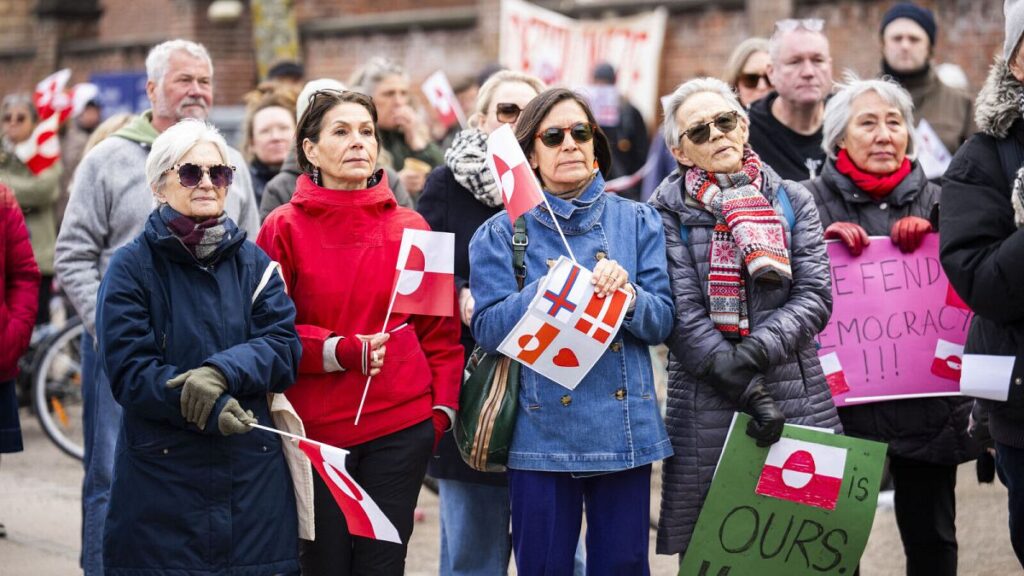Moscow was behind a disinformation campaign alleging that a Danish lawmaker had sought Russian assistance amid Trump’s threats to annex Greenland, Denmark’s security services have said.
The fake news operation first surfaced in January, when Donald Trump ramped up threats to seize control of Greenland, an autonomous territory belonging to Denmark.
The US President alleged Denmark should cede the island to the US to “protect the free world” and threatened economic sanctions if it didn’t, heightening tensions between Washington and Copenhagen and casting doubt over the integrity of the NATO Alliance.
The Danish Defence Intelligence Service (FE) has now accused the Kremlin of using their disinformation operations to sow further division.
Posts circulating on social media – and amplified by bots – claimed that Karsten Hønge, a Danish left-wing lawmaker, had asked Moscow to provide assistance to Denmark in order to prevent the US from annexing Greenland.
They included a doctored Facebook post allegedly published by Hønge, that said: “In a situation of extreme escalation and tension, we have to take extreme measures and ask for help from Russia to solve this problem.”
The fabricated post adds that it’s certain the request “will be heard” because the prospect of Greenland becoming part of the US is “as unfavourable” to Russia as it is to Denmark.
Hønge responded by firmly denouncing the claims as fake news.
Copenhagen accuses Moscow of sowing division
The Danish Defence Intelligence Service said that the fake post was first published by an “an influencer who has previously promoted Russia’s agenda in Ukraine.”
With support from the French anti-disinformation agency, Viginum, they identified the influencer as a known actor who is part of a Moscow-backed operation.
“The influence operation should be seen as part of the ongoing influence in which Russia is trying to create discord in the transatlantic relationship and undermine Western support for Ukraine,” the FE said, adding that the disinformation was also attended to sway the result of Greenland’s March general election.
Greenlandic non-profit organisations are warning that the island is getting caught in the disinformation cross-fire as geopolitical tensions boil and that it is unprepared for facing these hybrid threats.
Last December, a study found evidence of “hostile foreign actors” operating in Greenlandic Facebook forums, with the recent rapid advance of AI allowing actors to generate “convincing Greenlandic texts.”
Experts warn the territory is vulnerable to such campaigns due to its limited media landscape and the influence of social networks such as Facebook.
“Greenland’s media landscape is small and resource-constrained. Unlike larger countries, where media organisations have dedicated teams for investigative journalism and fact-checking, Greenland’s newsrooms operate on minimal staff and funding,” researcher Signe Ravn-Højgaard of the University of Greenland, recently said.
Read the full article here

